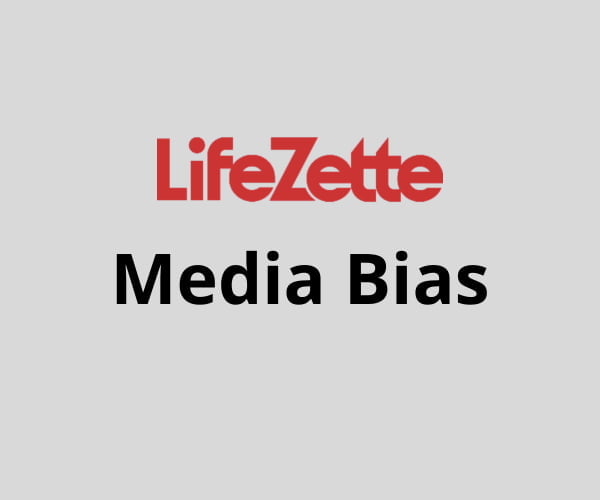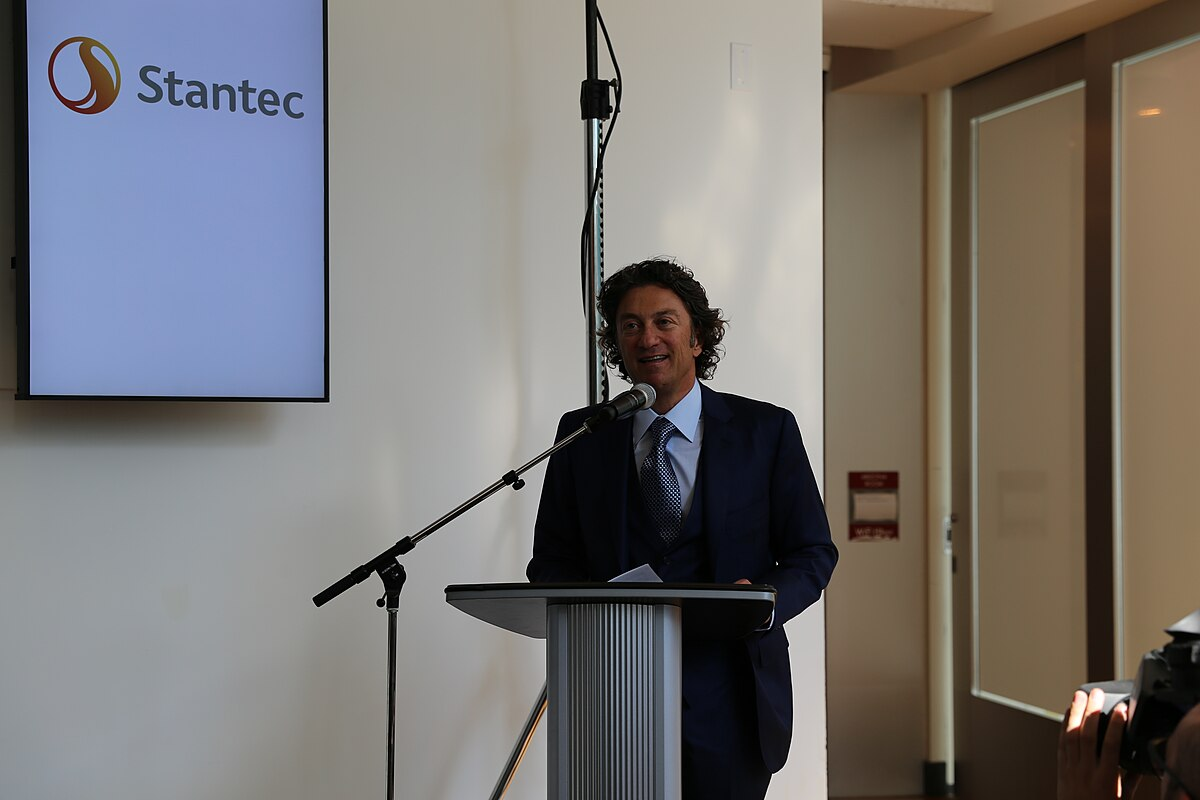
From its inception in 2015, LifeZette has quickly emerged as a significant voice in the media landscape. As a rapidly growing digital news and opinion platform, it has sparked discussions, controversies, and engagement among its readership.
When approaching whether LifeZette has a bias, developing a well-researched and comprehensive analysis is essential. Pew Research calculated average congressional sharing scores using DW-NOMINATE ideology estimates. They analyzed their relationship with Facebook engagement (likes, comments, re-shares) using regression models, adjusting for post popularity and party affiliation, with lifezette.com scoring 0.62, indicating a conservative-leaning:

Source: Pew Research
This piece will dive deep into LifeZette’s content, evaluating the themes, stories they prioritize, and angles from which they approach various topics. By closely examining its articles and editorial choices, we aim to ascertain if there is a clear political or ideological slant in their reporting. Through this exploration, we strive to shed light on bias in media outlets and help readers make informed decisions about the sources they trust.
How Does Biasly Rate News Sources?
Biasly’s algorithms produce bias ratings to help provide multiple perspectives on given articles. Biasly has analyzed 200,000+ news articles from more than 3,200 news sources through our A.I. technology and team of political analysts to find the most factual, unbiased news stories.
Biasly determines the degree of political bias in news sources by using Biasly’s Bias Meter Rating, in which Biasly’s team analyzes media sources’ reliability and bias and produces three scores, a Reliability Score that measures the accuracy of media sources; an A.I. Bias Score, evaluated by A.I.; and an Analyst Bias Score evaluated by political analysts. These scores are rated based on seven rating metrics including Tone, Tendency, Diction, Author Check, Selection/Omission, Expediency Bias, and Accuracy. These metrics help our analysts to determine the political attitude of the article.
Our A.I. machine-learning system employs natural language processing and entity-specific sentiment analysis to examine individual articles and determine their bias levels. By analyzing the key terms in an article such as policies, bias phrases, political terminologies, politicians, and their nicknames, the algorithms can rate the attitude of the text. Bias scores range from -100% and 100%, with higher negative scores being more liberal and higher positive scores being more conservative, and 0% being neutral.
Is LifeZette Politically Biased?
Biasly assesses LifeZette through a dual lens, utilizing an AI-driven computer algorithm complemented by the insights of seasoned human analysts. Currently, LifeZette holds a Computer bias score of Very Conservative and an Analyst bias score of Somewhat Conservative. Such ratings underscore the outlet’s tendency to cater to a right-wing audience. Analyst scores are determined by averaging ratings from at least 15 articles, each reviewed by a team of analysts—liberal, moderate, and conservative. The more comprehensive the selection of pieces reviewed by Biasly’s team is, the sharper the resulting analyst score will be. Critical influences on these scores include commendations of specific politicians and policies and critiques directed at conflicting principles and personalities. It’s worth noting that Biasly’s conclusions are consistent with those of other reputable third-party bias research firms.
Given the conservative slant of LifeZette, as illuminated by Biasly’s “Very Conservative” rating, readers’ perceptions of the publication may be influenced by their political inclinations. In the following sections, we aim to equip you with tools to recognize and navigate this bias, helping you differentiate opinion from fact and cultivate a more discerning news consumption habit.
Before we begin, we need to discuss bias. Bias is a natural function of humans, and we can express it both consciously and unconsciously. Bias is one of the most fundamental forms of pattern recognition in humans. This isn’t to lower the bar and say that “all things are biased,” but to explain the process in which we may come to trust certain news organizations that display patterns of coverage.
On the media’s part, there is an incentive to retain audiences, encourage them to purchase subscriptions, and rate products positively. Bias is a two-way street, people want to see news stories about things they care about, and the media needs viewers to continue their operations. This creates a positive feedback loop that influences what stories are covered and from what perspective. This also explains the actions of more liberal news organizations.
Analysis of Bias in LifeZette Online Articles
LifeZette delves into a broad spectrum of subjects ranging from politics and faith to health and popular culture. The outlet has attracted over 60.1K monthly visitors, showcasing its swift ascent in right-wing media. Given this background, one might wonder about the extent of LifeZette’s right-leaning bias. We will examine their articles closely below to discern any indications.
Biasly typically considers three leading indicators to evaluate bias: Tone, Author, and Diction. We will explore these in detail below. While the tone captures the sentiment conveyed in the text, it is distinct from diction, which pertains to the writer’s specific word choices. The Author indicator scrutinizes the background of the piece’s creator, particularly their past viewpoints as expressed in previous writings and on social media platforms such as Twitter.
The first article we’ll examine is entitled “Biden Regime’s DOJ Files Lawsuit Against Idaho In Attempt To Keep Killing Babies An Option.” Biasly has rated this article as 34% on the Bias Meter, or “Moderately Conservative.”
The article’s tone appears critical of the Biden administration and its approach to the issue of abortion:
“The US Justice Department’s interference with Idaho’s pro-life law is another example of Biden overreaching yet again while he continues to ignore the issues that really should demand his attention- like crushing inflation and the open border with Mexico.”
In this quote, “interference” implies an unwanted or inappropriate involvement. Coupled with the description of Biden as “overreaching yet again,” it suggests that the administration is habitually going beyond its appropriate bounds. Further, the statement insinuates that Biden needs to focus more on more pressing issues, framing the administration in a neglectful light.
“I will continue to work with Attorney General Lawrence Wasden to vigorously uphold state sovereignty and defend Idaho’s laws in the face of federal meddling.”
Here, the term “federal meddling” further underscores the tone of disapproval towards the Biden administration’s actions. “Meddling” carries negative connotations, suggesting inappropriate or unnecessary involvement.
Both quotes reflect a tone that is critical of the Biden administration, aligning with the perception of the federal government as intrusive and overstepping its bounds in state matters.
Delving deeper into the article’s diction, we notice a series of enthusiastically charged language choices that align with a conservative perspective. Phrases like “an extremely partisan-style group” when describing the Reproductive Rights Task Force, alongside terms such as “Killing Babies” in the title, all push towards a language tailored to trigger strong emotions in readers, especially those sympathetic to conservative ideologies.
Throughout the piece, the tendency to scrutinize and critique the Biden administration’s efforts against Idaho’s abortion law remains prominent. The narrative presents the administration as directly opposing state rights and sovereignty. The continuous emphasis on this perspective indicates a solid conservative bias in raising the issue.
The headline and accompanying subtitle further emphasize the author’s stance. The term “Biden Regime” instead of neutral terminology like “Biden Administration” displays expediency bias, aiming to draw readers in with robust and oppositional language. This assertion is compounded further by the bold claim that “The White House is Pro-Death” — a statement that unequivocally lays out the article’s perspective:

Source: LifeZette
Finally, regarding author bias, this piece is not by a specific person. Instead, a far-right source, Red Voice Media, authored the article for LifeZette to feature on its website. In 2014, Ray Dietrich and Zach Heilman amassed over 2 million followers on Facebook in pro-law enforcement and conservative politics. However, they faced extensive censorship and demonetization by big tech. Undeterred, they launched Red Voice Media in 2020, joined by Drew Berquist, to fight cancel culture. Committed to free speech and challenging “big tech censorship,” they’re determined to confront misinformation against conservatives and promote the America First agenda.
In recent years, LifeZette has made its stance known concerning its coverage of various political figures. Their May 2023 hit piece against Democratic Senator John Fetterman is no exception: “Fetterman can’t even complete a single sentence, but at least he finally put on a suit [WATCH].” The article, sourced from Red Voice Media, zeroes in on a particular moment where Senator Fetterman appears to falter in his speech, using it as an opportunity to critique not just the moment but the Senator’s overall competence:
Holy WOW!!!
Fetterman finally puts on a suit…
but then, he can’t even complete a single sentence. pic.twitter.com/MoEnnrn7hz
— Red Voice Media (@redvoicenews) May 16, 2023
Moreover, the headline’s snarky remark about the Senator wearing a suit seems more ad hominem than substantive. Critics argue that focusing on a person’s appearance, especially in politics, detracts from the more pressing issues. The decision to wear a suit should ideally be a non-issue compared to the policies and decisions politicians advocate for.
Given the partisan nature of the current political climate, it’s common for media outlets to emphasize moments that paint political adversaries in a negative light. One-off incidents should be distinct from the broader picture to understand a public figure’s capabilities or intentions comprehensively.
Another LifeZette article, “Judge Jeanine Pirro Warns Biden Is Moving Towards Reparations With U.N. Racism And Human Rights Envoy Invitation,” has no known author attached to it. However, Biasly assigned it a bias rating of “Very Conservative,” and a Policy Leaning score of “Somewhat Conservative”:
| Metric | Explanation |
| Tone: | The tone in the article is strongly negative towards President Biden and his administration’s actions. Judge Jeanine Pirro criticizes Biden’s invitation to the United Nations and suggests it’s a move towards slave reparations.
“And it’s revisionist history with the United States asking the U.N. to come into America and assess whether or not we are a racist country. I’m telling you, Sean, where that’s going as they are going to finally say we need to pay reparations, and that’s where this is all going. They are destroying everything that is American.”
“You invite our enemies to visit the United States and investigate whether there are human rights issues stemming from the George Floyd murder, compile information, and report back to the world? Are you stupid or crazy? You ask people with dirty hands to judge the most freedom-loving nation in the world.” |
| Tendency: | The article consistently maintains a negative tone throughout its entirety. The author criticizes Biden and the United Nations’ involvement. |
| Diction: | The diction in the article is strongly conservative-leaning. Judge Jeanine Pirro uses harsh language like “destroying everything that is American,” “inviting our enemies,” and “dirty hands.” These words emphasize a negative view of the administration’s actions and Biden’s overall intelligence. |
| Expediency Bias: | The headline and the article summary create a strong initial impression that is overly critical of President Biden and his invitation to the United Nations. The headline and summary language portray Biden’s actions as questionable and harmful to the United States, reflecting a highly conservative expediency bias. |
Analysis of LifeZette Opinion Articles
Before addressing this topic, distinguishing between reporting and opinion is essential. Reporting aims to provide unbiased information, presenting facts and firsthand statements so readers can reach their conclusions. Conversely, opinion pieces allow writers to share their perspectives on current matters. According to LifeZette’s “About Us” page, “Opinion articles on LifeZette are either labeled as opinion and/or provide the author’s name ahead of the title, i.e. NAME: ARTICLE TITLE.”
Consider the opinion article “Republicans Have to Get Smarter at Winning Elections.” This piece discusses the Republican Party’s disappointment in the 2022 midterm elections and the need for strategic improvements. It highlights issues such as single-issue voting among women, internal party divisions, the enduring influence of former President Donald Trump, and concerns about election integrity in states like Arizona and Texas. The article concludes by emphasizing the necessity for the Republican Party to adapt its tactics, especially in swing states with Democratic leadership, to enhance their electoral prospects in the future.
Another opinion piece, “Leftists in the U.S. and Canada Challenge Satire Sites as Purveyors of Parody,” criticizes left-leaning political leaders in the U.S. and Canada for their behavior and alleged hypocrisy. The author argues that these leaders have adopted practices and policies reminiscent of satire sites like The Onion or The Babylon Bee, suggesting they behave like a religious cult. The piece provides examples, such as radical legal tactics and support for censorship, to illustrate the perceived shift in liberalism. It also comments on Canada’s situation under Prime Minister Justin Trudeau, accusing him of mischaracterizing peaceful protests and citing government pressure on dissent. The article concludes by questioning the alignment of these governments with principles of free speech and the historical consequences of such actions.
Distinguishing between reporting and opinion is crucial when engaging with the media. The two serve distinct purposes, with reporting aiming to provide accurate and non-partial information. At the same time, opinion pieces offer different insights and perspectives. The examples of the opinion articles from LifeZette underscore how diverse viewpoints can shed light on important issues, whether discussing a political party’s future or critiquing government leaders’ actions. By recognizing and appreciating this distinction, readers can navigate the complex landscape of news and commentary more effectively, enabling them to form well-informed opinions and engage in meaningful discussions about the pressing matters of our time.
Who Owns LifeZette?
In January 2018, LifeZette underwent a significant transformation when Laura Ingrahm relinquished the majority stake in the company to The Katz Group, an entity helmed by influential Canadian billionaire Daryl Katz.

Source: Daryl Katz (cropped)
The ownership transition represented a pivotal juncture in the platform’s course, symbolizing the convergence of American conservative media with global business concerns. This strategic choice had profound implications for LifeZette’s editorial orientation. It swayed within digital right-wing news, ushering in a fresh era under its recently acquired proprietorship.
How to Evaluate and Uncover Bias
It can often be difficult to tell if the news you watch is biased. If you have settled on a news channel, it’s usually because you trust the information you are gaining. Unfortunately, many trust the information they are hearing because it confirms what they already believe. This is referred to as “confirmation bias.” It is important to challenge your beliefs and get third-party verification that what you are hearing is the full story. This is why we recommend using Biasly to compare different news stories side-by-side using our bias ratings to figure out what both sides think of a political issue.
LifeZette, no different from other news outlets, faces the challenge of being perceived as biased by some readers. Recognizing that confirmation bias can influence our perception of news, even when we believe we’re consuming undiluted information. In the case of LifeZette, which is known for its conservative perspective, it’s crucial to approach its content with a discerning mindset.
While it’s true that every article you encounter may exhibit some bias, specific sources maintain a higher standard of factual reporting than others. This reality underscores the significance of utilizing Biasly’s News Check feature to assist you in assessing the inherent bias within your content.























